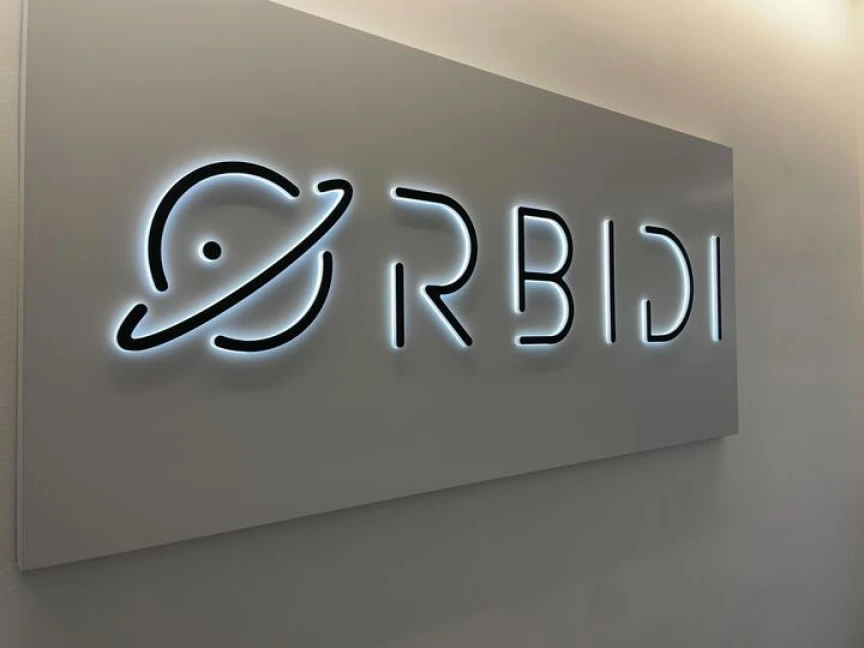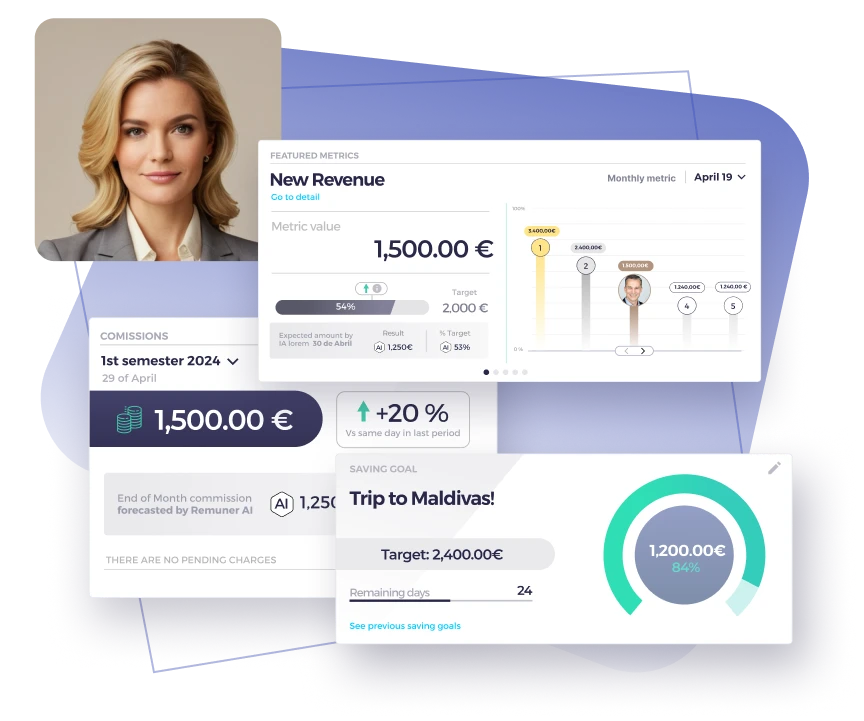Table of contents
What is a Sales Decelerator?
A sales decelerator is a commission strategy that companies use to reduce commission rates after a sales rep reaches specific sales targets. Usually, the more sales reps sell, the more commission they earn. But with a sales decelerator, once they surpass certain goals, their commission rate decreases slightly.
This might seem unusual, but companies use this method to ensure commission costs stay manageable. It also encourages sales reps to focus on making high-quality, profitable sales rather than just pushing for quantity.
For example, imagine a salesperson receives a 10% commission until they reach their sales goal. After surpassing that goal by a certain amount, their commission rate might drop to 8%. This structure motivates the sales rep to prioritize valuable, long-term customer relationships rather than chasing smaller, quick sales just for higher commissions.
Why Companies Use Sales Decelerators (3 Key Reasons)
Companies choose to implement sales decelerators primarily to balance incentives and profits. Below are 3 important reasons businesses use them:
1. Cost control
Unlimited commission rates can quickly become too expensive for companies. If reps consistently surpass their quotas significantly, the company might struggle to manage increasing costs. Sales decelerators keep expenses predictable and help avoid overspending.
2. Focus on quality sales
By slightly reducing commissions after hitting specific sales milestones, sales decelerators encourage salespeople to shift their attention from quantity to quality. They become motivated to seek deals with higher profit margins or customers who offer greater long-term value to the company.
3. Aligning company goals
Decelerators help direct the sales team’s efforts toward particular products or customer types that match the company’s broader strategic objectives. By carefully designing the compensation plan, the company guides its sales force toward making sales that best align with overall business goals.
Ready to implement sales decelerators in your compensation plan? With Remuner’s platform, you can easily configure decelerators to align with your business goals—whether it’s protecting margins, incentivizing balanced performance, or optimizing payout fairness. Our incentive plan designer let you set custom thresholds, adjust rates in real-time, and automate calculations, so your comp plan stays agile and effective. No spreadsheets, no guesswork—just smarter incentives.
Sales Decelerator Examples (Real-World Scenarios)
To understand sales decelerators better, let’s look at two practical examples:
Example 1: Software sales company
Consider a software sales representative whose annual sales target (quota) is $500,000. The commission structure might look like this:
- Up to $500,000 in sales: 10% commission
- Between $500,000 and $600,000: 15% commission (accelerator)
- Above $600,000: 8% commission (decelerator)
If the rep sells $650,000 for the year, their earnings would be:
- $50,000 (10% of $500,000)
- $15,000 (15% of the next $100,000)
- $4,000 (8% of the final $50,000)
Total earnings: $69,000. The sales decelerator ensures that even as the rep surpasses the goal, the commissions stay within a sustainable range for the company.
Example 2: Insurance company
An insurance company pays commissions based on the number of policies sold:
- Up to 100 policies: $100 per policy
- 101–150 policies: $120 per policy (accelerator)
- Above 150 policies: $80 per policy (decelerator)
If a sales rep sells 160 policies, their earnings look like this:
- $10,000 (100 policies × $100)
- $6,000 (50 policies × $120)
- $800 (10 policies × $80)
Total earnings: $16,800. Here, the decelerator helps control costs, even with exceptional sales performance.
How to Implement a Sales Decelerator (Step-by-Step Guide)
When adding a sales decelerator, companies should follow these key guidelines:
- Set clear and realistic targets: Clearly define at which point the decelerator will take effect. Reps need straightforward goals so they understand how their compensation will change based on performance.
- Communicate transparently: Sales decelerators can feel confusing if reps don’t understand why they’re necessary. Communicate clearly why the company uses them and how they ultimately help ensure sustainable growth and profitability.
- Balance incentives carefully: Combine decelerators with commission accelerators to maintain strong motivation. If decelerators aren’t balanced properly with positive incentives, sales reps might become discouraged or feel unfairly penalized.
Utilizing compensation management software like Remuner simplifies the process, making it easier to manage, communicate, and clearly show reps how their compensation works. Want to automate sales decelerators in your commission plan? Try Remuner’s compensation management software for seamless tracking and transparency.
Sales Decelerator vs. Accelerator: Key differences
Sales accelerators and decelerators serve opposite purposes:
- Accelerators: These increase commission rates as sales reps surpass specific targets. They reward high performance and encourage salespeople to exceed quotas.
- Decelerators: These reduce commission rates after a certain level is reached, preventing commission costs from spiraling out of control and guiding reps toward strategic goals.
Using accelerators and decelerators together helps companies create balanced, sustainable compensation plans that drive consistent, profitable sales performance.
Potential Risks of Sales Decelerators (And How to Avoid Them)
Although sales decelerators are beneficial, if poorly managed, they can create problems:
Reduced motivation
Sales reps might feel they’re being penalized for success if the reasons behind the decelerator aren’t clear. Gartner research shows that 42% of companies adjust commission structures annually to align with profitability goals – but frequent changes without transparency can harm morale.
Increased complexity
Adding a decelerator can complicate the compensation plan, making it harder for reps to understand exactly how their earnings work. This confusion can lead to frustration or decreased trust in management.
Companies can avoid these issues by using transparent compensation management tools such as Remuner, clearly communicating the purpose behind the decelerator, and balancing it with motivating incentives.
Best practices for using sales decelerators
Here are key best practices to successfully use a sales decelerator:
1. Communicate openly and frequently
Clearly explain why decelerators exist, how they support company goals, and how reps ultimately benefit. Open communication builds trust and acceptance among the sales team.
2. Offer non-financial incentives
Combine decelerators with rewards like professional recognition, additional training opportunities, career advancement, or awards. These rewards help offset any potential feelings of dissatisfaction and maintain motivation.
3. Regularly review your commission plans
Frequently evaluate your commission structures to ensure they’re fair, effective, and aligned with your current business goals. Make adjustments as necessary based on sales performance data and rep feedback.
FAQs about Sales Decelerators
What is the main goal of a sales decelerator?
The primary goal is to manage commission expenses and guide sales reps toward profitable, high-quality sales that match the company’s long-term strategy.
Can decelerators demotivate sales reps?
Yes, they can if poorly communicated or unfairly designed. Companies should clearly explain why they’re used and balance them with motivating incentives to prevent demotivation.
When should a company use a sales decelerator?
Companies use decelerators when there’s a risk that commission costs will become too high, or when the sales strategy prioritizes quality and profitability over quantity.
Which industries commonly use sales decelerators?
Technology, software, insurance, finance, and other industries that rely heavily on sales commissions commonly implement decelerators to manage costs and maintain strategic growth.
Can sales decelerators hurt sales performance?
If not carefully implemented, yes. Poorly managed decelerators can negatively affect rep motivation and productivity. Effective communication and strategic plan design help avoid these problems.
Conclusion
Sales decelerators help companies manage expenses, align sales performance with strategic goals, and encourage profitable customer relationships. To successfully implement them, companies need clear communication, balanced compensation plans, and regular evaluations of effectiveness.
Compensation management tools like Remuner simplify the process, ensuring transparency and ease of use for both management and sales teams. By implementing sales decelerators effectively, companies can drive sustained sales performance and profitability. Discover how Remuner can streamline your sales for free. Book a demo now!





